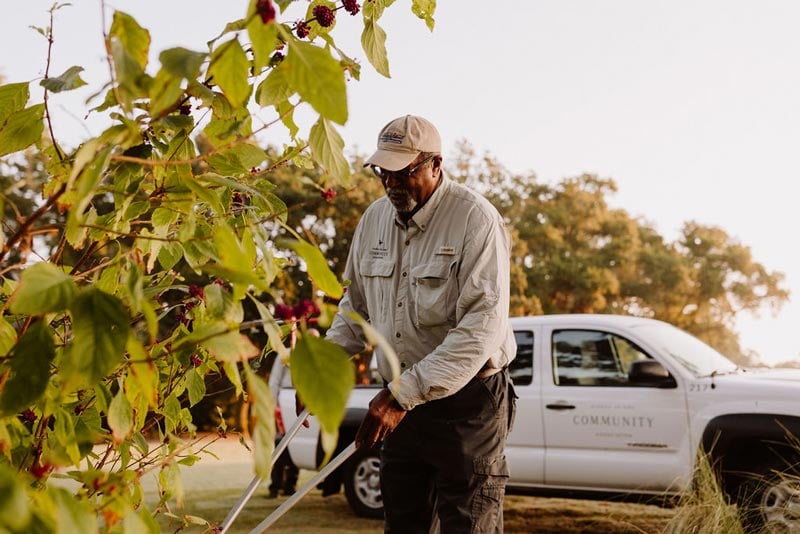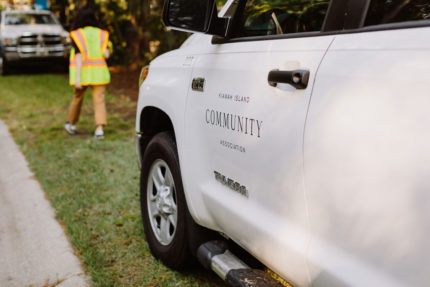Sep
05
2011
From The Blog
For Sale: Kiawah’s Water and Sewer Company
The Town of Kiawah Island (TOKI) is considering purchasing Kiawah Island Utility (KIU), the island water and waste water company, from the developer, Kiawah Partners (KP). The development agreement between TOKI and Kiawah Partners gives TOKI the “right of first offer,” should the developer decide to sell the utility company. At the July 12 town council meeting, Mayor Steve Orban reported Kiawah Partners’ interest in a potential sale. The council now has 120 days, until Nov. 9, to evaluate the purchase, conduct a referendum, and exercise its right.
Digest contacted Kiawah Mayor Steve Orban, utility company President Townsend Clarkson, and Joe Hall, chair of the Seabrook Water and Sewer Commission, to learn about the process and how an ownership change might affect community association (KICA) members.
At the July meeting, the town council voted unanimously to appropriate funds for a feasibility study, and the mayor appointed an advisory committee headed by council member Charlie Lipuma. Charlie and Steve’s professional and educational backgrounds in business and engineering will be advantageous in deciding whether to proceed. The other committee members are recent KICA board member and Strategic Planning Committee chair Jim Williams, TOKI planning commission member and past chair of the KICA
Major Repairs Committee Ron Tedesco, Board of Zoning Appeals member and former KICA Finance Committee chair Charlie Larsen, TOKI administrator Tumiko Rucker
and treasurer Ken Gunnells. During the feasibility study, which the mayor expects to last “a couple of months,” the advisory committee will hire legal, engineering and financial advisors to evaluate the infrastructure and the utility’s health and assist with financing options. “We will probably do a bond sale,” said the mayor. “That would be part of the referendum.”
Steve explained how the advisors determine the company’s value. “They begin with a ‘green field’ evaluation and figure the cost of replicating the existing system in an open green field. Then they subtract the depreciation KIU has taken over the years. The age of the existing infrastructure will also be part of the evaluation; for example, what is the useful life of that 16- yr old pipe? They will consider cash flow, and will also look at whether we will have enough water when we reach build-out.” Kiawah Partners also has a price range, provided by their own consultants.
Kiawah’s water comes from the St. Johns Water Company (SJWC), a non-profit corporation financed by the U.S. Department of Agriculture. SJWC purchases its water from the Charleston water system under a long term contract at wholesale rates. Steve commented, “We are allocated 3.6 million gallons a day from St. Johns, and that won’t increase. In the summer it’s not enough, but in winter it’s more than we need, so in winter the excess water is stored in the aquifer. If that’s not enough, I don’t know what happens. It’s one of the questions we will have to answer.”
The South Carolina Department of Health and Environmental Control (DHEC) would regulate a publicly owned KIU. DHEC issues the permits for every aspect of water use, requires monthly inspection of hundreds of water samples, and annually inspects facilities and equipment and reviews monthly reports and lab and maintenance records.
Water and sewer rates for privately owned utilities like KIU are set by the state Public Service Commission (PSC). When the PSC commissioners raise SJWC’s water rate, St. Johns passes the increase on to its clients. KIU is authorized to recoup this additional expense from customers without requesting a rate increase, but any additional increase requires a formal rate request to the PSC.
TOKI ownership would bypass the PSC. Townsend explained, “The town can set up its own utility commission that would control the rates. You avoid a rate increase process that, with applications and evaluations, takes about a year and costs around $200,000. With an outside private company you can expect an increase every 18 months—as soon as they get one they start working on the next. We haven’t had a rate increase beyond the cost of water in ten years, because we have been able to cover substantial increases in our operating expenses by the expanding number of customers. But we are close to the last 10% of developable real estate, with only about 400 units remaining. We have an efficient operation, better than the standards call for, and that has kept costs down. Unless the cost of water goes up, I expect that the town would only need increases for capital projects.”
The discussion about a possible sale arose because Kiawah Partners is petitioning the PSC for a rate increase and the funding of a $6.5 million project to supplement a 25-year-old major feed line from Freshfields to the island. Townsend related, “The development agreement requires the developer to inform the town when it plans to request an increase. Buddy Darby and I set a meeting to do that. We wanted to review with them what we are doing, the time frame, and the amount of the request. That led to a discussion about our long term objectives for the utility.”
The time seems right to Kiawah Partners for a sale, with the utility infrastructure mostly in place and little land still left to be developed. Townsend said, “We are a developer, and we planned to sell it eventually. Eight or ten years ago the town considered a purchase, but it didn’t happen. In this financial market, a utility is a desirable place for investment money because it’s stable. A lot of entities are looking at utility company operations now, and we have had several approach us about selling, one, in particular, from Texas. The utility can bring a higher price now than when real estate is appreciating.”
Although private companies are interested, the developer prefers to sell to TOKI. “All things even, the town should end up as owner, either this year or down the road; it’s better for the community than an independent party,” said Townsend. “We have also considered KICA, but the covenants would make their ownership of the utility difficult. Typically a municipality owns the utility; they can operate at less cost than even a community association.
The town doesn’t pay income or property taxes and can usually borrow at rates substantially less than a business can, so it can operate a utility company for less than a private entity can. It’s typically not difficult for a town to get bond money, and at times there is federal and state money available to help with that. The town is service motivated, whereas an independent company would be more profit driven. In the long term, I think the rates will be more stable and lower than with the developer or another private company. We don’t make our living through the utility company, but it does make a profit.”
Steve talked about the pros and cons of ownership. “Our goal is to provide the best service possible to people on Kiawah, with quality water at a reasonable price. There are financial advantages. We would run it as a nonprofit. Public utilities don’t pay taxes and can get trucks and equipment from the state of South Carolina cheaper than private companies can. Also we would have control over the water and sewage, with our own managers or by hiring a company to do it for us, as Seabrook does. On the other hand, if you are the provider and water or sewage breaks down, the citizens come to you. We would have to run the plant efficiently and put aside enough money for maintenance and renewal and not let everything get old on us at one time. We would need a schedule for replacements and a reserve fund for future needs.”
Seabrook purchased its utility company from the owner more than 15 years ago, and Joe Hall has been involved with it ever since. Joe recalled that the owner agreed to negotiate a sale, but after a successful referendum in which 90% of voters approved the purchase, the owner reneged. The town had to condemn the utility.
Townsend said that the Kiawah situation is different from Seabrook’s. “KIU is in good shape, and our service exceeds what you’d expect from a utility. We are the PSC’s #1 rated privately owned utility company in South Carolina and we have won a fair share of awards. Our General Manager, Becky Dennis, has been very involved with PSC and DHEC. She is a past president of the South Carolina water and waste association and is highly respected. On Seabrook, the town had to condemn the utility to protect their service.”

